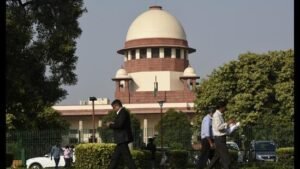
Communist regimes often rest on a precarious balance between civilian political authority and the military’s autonomy. With his declaration that “power flows from the barrel of the gun, but the Party must always command the gun”, Mao Zedong addressed this inherent schism and made the People’s Liberation Army (PLA) subservient to the Communist Party of China (CPC). However, dictums alone cannot dictate power tussles, and all Chinese leaders since Mao have made tactical arrangements to command authority over the PLA and thereby, the People’s Republic of China (PRC).

Unlike his predecessors, Xi Jinping’s dealings with the PLA have been troubled since the restructuring of the force in 2016. This relationship appears to have become increasingly tumultuous with an ever increasing number of Xi’s picks falling into the anti-corruption net. Since 2017, the following number of generals promoted by Xi have fallen into the anti-corruption net: three out of six in 2017, 11 out of 17 in 2019, three out of five in 2020, six out of nine in 2021, 11 out of 12 in 2022, six out of seven in 2023, three out of three in 2024, and eight in 2025.
At the recent fourth plenum, nine PLA officers and five party officials were sacked from the CPC on corruption charges. Interestingly, all the resultant vacancies in the Central Committee (CC) have been filled by the party officials with no PLA member getting promoted. Moreover, 22 out of the 33 generals and five out of nine lieutenant-generals serving on the CC were absent from the meeting. Among others, these included the commanders of the Northern, Southern and Western Theater Commands. As the commander of the Eastern Theater Command, general Lin Xiangyang was purged at the plenum; Initiation of anti-corruption proceedings against these three generals would effectively mean commanders of four out of China’s five theater commands falling into the anti-corruption net.
The plenum promoted Zhang Shengmin to second-ranked vice-chairman of the Central Military Commission (CMC) after his predecessor He Weidong was expelled from both the military as well as the party. However, Zhang did not get his customary seat at the politburo, a body where Xi and his acolytes command majority votes. Similarly, defense minister Dong Jun yet again failed to make it to the CMC. While both these cases are not without precedence, they are rare and suggestive of a power play.
A factional-modelling based analysis locates the current conundrum in the infighting between the so-called Shaanxi Gang headed by the first-ranked vice-chairman of the CMC, Zhang Youxia, and the Fujian clique headed by the now purged, He Weidong. This modeling fails to capture the wide range of the anti-corruption campaign within the PLA. Moreover, factions are interwoven into the systemic design of the CPC, and Chinese top leaderships are usually adept at manoeuvring them to advance their agenda.
Therefore, the present crisis is perhaps more driven by differences in the policy approaches and visions of Xi and Zhang vis-à-vis the military. In this context, two theaters are worth exploring: Taiwan and India. Among the recently sacked officers, He Weidong, Miao Hua and Lin Xiangyang had previously served in the 31st Group Army, which is a land-force unit facing Taiwan. Similarly, all four commanders of the PLA Rocket Force since 2016 have been removed. As the force controlling China’s missile arsenal, Rocket Force is expected to play a pivotal role in a Taiwan contingency.
Similarly, the India-facing Western Theater Command appears to be witnessing a jostling for supremacy. He Weidong served as the commander of the Western Theater Command (ground forces) between 2016-2019. Interestingly, this period coincided with the two informal leaders’ summits between India and China that went without any customary incursions by the PLA inside Indian territory. That this initiative did not have the imprimatur of the PLA is clear from the fact that as soon as He was succeeded by Xu Qiling, the Galwan clash happened (in 2020), putting paid to the summits. It is likely that He was in step with Xi’s India initiative, which would explain why he was promoted as vice-chair, CMC, superseding several seniors. While He was purged at the recent plenum, Xu’s whereabouts are unknown and the current incumbent, Wang Haijiang did not attend the plenum.
As the CPC approaches the 21st Party Congress and the PLA is slated to celebrate its centenary in 2027, the battle for the control of Zhongnanhai has begun.Whether Xi will be able to surmount this challenge remains to be seen.
Shikha Aggarwal is a scholar of China Studies. The views expressed are personal




